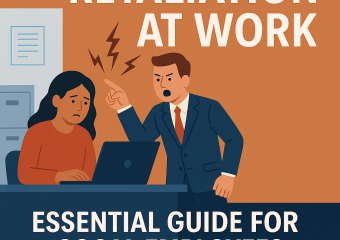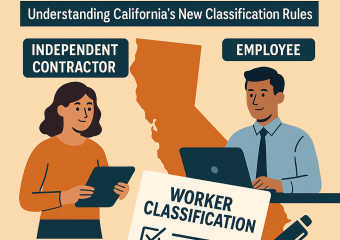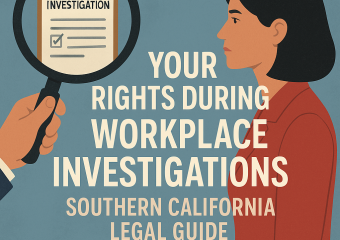SoCalWorkLaw’s Legal Survival Guide for Employees Across Southern California
Navigating Employee Rights with SoCalWorkLaw: Your Essential Legal Survival Guide
Understanding Your Employment Rights in Southern California
In the bustling business environment of Southern California, understanding your employment rights isn’t just important—it’s imperative. Whether you are new to the job market or an experienced worker, knowing how to handle workplace situations legally and effectively can significantly affect your professional and personal life. This guide aims to arm you with crucial information and tips to help you navigate legal challenges you might face as an employee in this region.
What Are Your Fundamental Rights as an Employee?
Every worker in Southern California is entitled to basic rights under both federal and state laws. These rights ensure your safety, dignity, and fairness in the workplace. Key areas covered include discrimination, harassment, wage and hour laws, and wrongful termination. For instance, California’s labor laws are known for being more comprehensive and favorable to employees compared to many other states, often offering greater protection against unjust treatment.
- Right to Fair Compensation: Employees are entitled to receive at least the minimum wage, along with overtime pay for qualifying hours worked beyond the standard full-time hours.
- Freedom from Discrimination and Harassment: Federal and state laws, such as the Fair Employment and Housing Act (FEHA), protect employees from discrimination based on race, religion, sex, age, disability, sexual orientation, and other protected characteristics.
- Safe Working Environment: Regulations are in place to ensure that all workers operate in a safe and healthy work environment, free from potential hazards and risks.
Navigating Wage and Hour Laws in Southern California
Understanding wage and hour laws is crucial for ensuring that you are compensated fairly for your labor. California law stipulates that employees must be paid at least the state minimum wage, which regularly updates to adjust for living costs and inflation. Additionally, employees are to receive overtime pay for work done beyond eight hours in a single day or 40 hours in a week.
Misclassification of employees as independent contractors is another common issue in the Southern California job market. This wrongful classification can strip workers of rightful benefits and protections, such as health insurance, workers’ compensation, and unemployment benefits. Familiarizing yourself with the criteria for employee versus contractor status can help you identify and rectify possible misclassifications.
Dealing with Discrimination and Workplace Harassment
Workplace discrimination and harassment can manifest in many forms, ranging from overt acts like unjustified dismissals and demotions to subtler types, such as exclusion from meetings or inappropriate jokes. It’s important to recognize the signs of such behaviors and understand the routes available for redress.
If you feel you are being subjected to discrimination or harassment, documenting every incident meticulously provides essential evidence for any legal action you might pursue. Moreover, California law mandates all employers to have written policies against harassment and discrimination, which should include a clear process for reporting such incidents.
Wrongful Termination: Know Your Rights
Wrongful termination is another critical area where legal knowledge is essential. California is an at-will employment state, meaning that either the employer or the employee can end the employment relationship at any time. However, there are exceptions to this rule, such as terminations due to discrimination, retaliation, or refusing to participate in illegal activities.
If you suspect your termination was unlawful, it’s advisable to consult with a legal professional who specializes in employment law. Lawyers can offer guidance, negotiate settlements, or represent you in legal proceedings if necessary.
Final Thoughts
As an employee in Southern California, staying informed about your legal rights and the mechanisms for their enforcement is crucial. In situations where you’re unsure about your rights or the best course of action, seeking professional advice from organizations like SoCalWorkLaw can be invaluable. They can provide the necessary tools and support to navigate through complex employment issues effectively, ensuring that you are both protected and empowered in your workplace.
Overall, knowing and understanding employment laws isn’t just about handling disputes—it’s also about building a secure and equitable working environment for yourself and your colleagues.




